Electric vehicles are the automotive industry’s future, and the Indian government is also pushing/encouraging more electric vehicles on the road. Electric vehicles (EVs) are popular in India, as they offer many advantages over traditional petrol and diesel cars. These include lower running costs, zero emissions, and government incentives. However, one of the main barriers to wider EV adoption is the lack of charging.
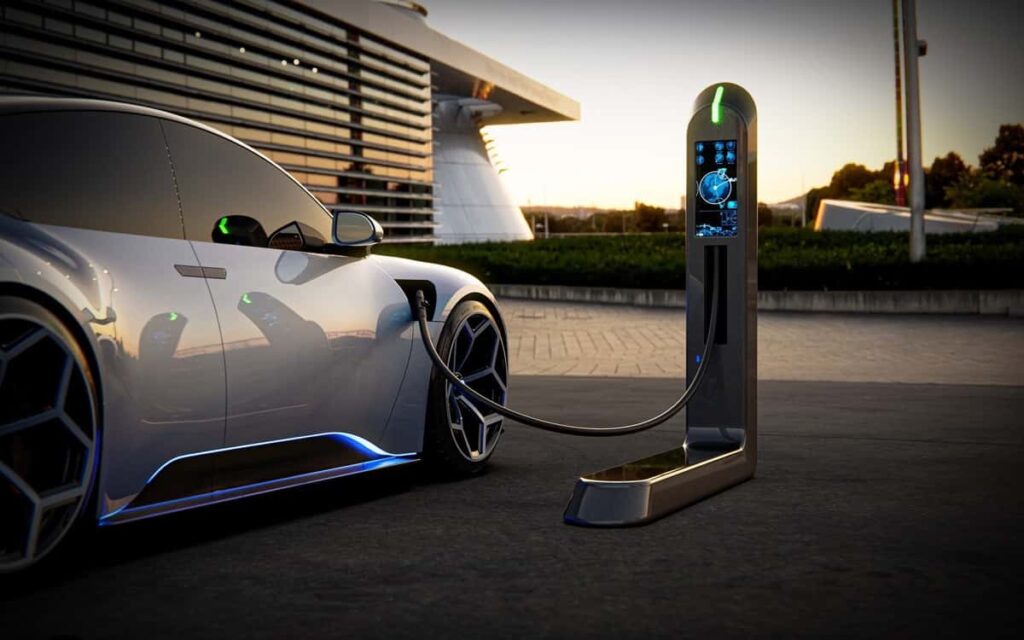
Therefore, to encourage more people to switch to EVs, it is important to have a good network of charging stations. If you are considering starting an EV charging station in India, there are a few things you need to know. This blog post will overview the process and what you need to do to start. In addition, we will cover the investment/cost, profit margin, requirements, business plan, and license/permits.
How to start/open an EV charging station in India
EV charging station setup cost in India
The setup cost of an EV charging station in India can vary depending on several factors, such as the type of charger, the location, and the number of stations required. For example, a basic Level 1 charger can cost as little as Rs 1 lakh, while a more powerful Level 2 or Level 3 charger can cost upwards of Rs 5 lakh.
The installation cost will also vary depending on the location – urban areas will typically be more expensive than rural areas. Finally, the number of stations required will also affect the overall cost. For example, a single EV charging station for a home or small office may cost around Rs 2 lakh, while a large commercial EV charging station with multiple chargers may cost upwards of Rs 10 lakh.
EV charging station profit margin in India
The profit margin for an EV charging station in India will vary depending on the size and location of the station, as well as the number of customers using it. Generally, the larger the station and the more customers it has, the higher the profit margin will be. The setup cost and maintaining the station must be covered, as well as any electricity costs.
In case you missed it: Petrol Pump Business Plan in India: A Step By Step Guide for Investment/Cost, Profit Margin, License/Permits, and Requirements
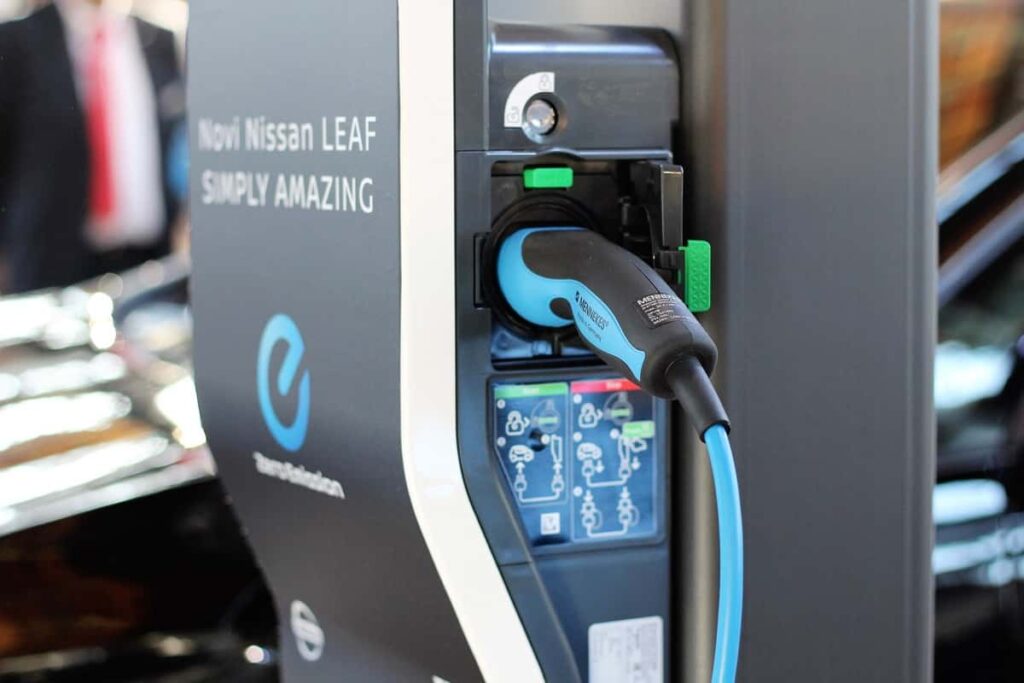
In addition, a portion of the profits must be reinvested into the business to cover expansion and upgrades. Assuming all these factors are considered, the average profit margin for an EV charging station in India is 10-15%. Depending on the business’s success, this can change, but it provides a good starting point for calculating potential profits.
Equipment required for starting an EV charging station in India
- A three-phase connection with a minimum of 16 amperes – your local power utility company can provide this.
- An EV charger – there are many different types and brands of EV chargers available on the market, so choose one compatible with the EVs that will be using your charging station.
- Cables and connectors – you will need to purchase cables and connectors compatible with your EV charger and the EVs that will be using it.
- A billing system – this can be a simple prepaid card system or a more sophisticated system that integrates with your existing accounting software.
- Signage – you will need signage at your charging station to let drivers know where it is and what type of EVs it can charge.
Subsidy on EV charging stations in India
Electric vehicles are the future. With the world moving towards electric vehicles, countries must invest in infrastructure to support this shift. India is one of the many countries investing in electric vehicle charging stations. The Indian government has announced a subsidy of 30% on setting up EV charging stations.
This subsidy is available for both public and private charging stations. This move by the government will help India’s electric vehicle market grow. It will also create employment opportunities in the country. With more people switching to electric vehicles, the demand for charging stations will increase. This will lead to more investment in this sector and create more jobs.
Business plan for an EV charging station in India
India’s electric vehicles (EVs) market is expected to grow significantly in the coming years. With this growth, there will be an increased demand for EV charging stations. To tap into this market, it is important to have a well-prepared business plan. Below are some points for creating a business plan for an EV charging station in India:
- The market potential: As mentioned, the EV market in India is expected to grow rapidly in the coming years. It is important to assess the potential market size and growth rate to make informed investment and Infrastructure planning decisions.
- The business model: Various business models can be adopted for an EV charging station business. Choosing a model best suited to the local market conditions and the company’s strengths and weaknesses is important.
- The competition: Several companies are already operating in the EV charging space in India. Assessing the competition and identifying ways to differentiate your business is important.
- The regulatory environment: The regulatory environment for EVs and charging infrastructure is still evolving in India. It is important to stay up-to-date with the latest regulations and ensure compliance.
- The financials: A sound financial plan is critical for any business venture. This is especially true for an EV charging station business, which requires significant investment upfront.
In case you missed it: How to Start a Small Hotel Business in India: Business Plan, License, Permits, Setup Cost, Profit, and Requirements
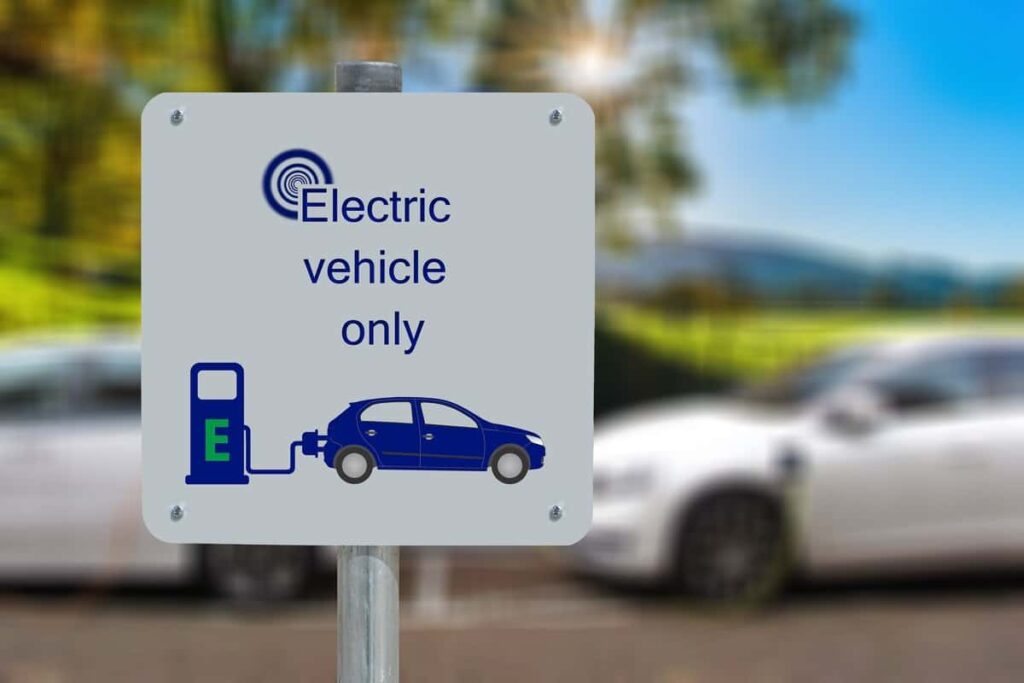
Requirements to start an EV charging stations business in India
The Indian government has been pushing for the adoption of electric vehicles (EVs) in a big way and has offered several incentives to manufacturers and buyers. The government’s focus on EVs is part of its larger goal to reduce the country’s dependence on imported oil and curb emissions. With the EV market in India expected to grow exponentially in the coming years, there is a big opportunity for businesses to start EV charging stations. Here are the requirements for starting an EV charging station business in India:
- License: You will need to obtain a license from the Electricity Regulatory Commission of your state.
- Infrastructure: You will need to set up the infrastructure for your charging station, which includes the installation of charge points, electrical wiring, and other necessary equipment.
- Connectivity: Your charging station will need to be connected to the power grid to draw electricity to charge EVs.
- Location: The location of your charging station is important as it needs to be easily accessible by EV owners. You can either set up your station at a public location, such as a shopping mall or a petrol station, or you can set up a private charging station at your home or office.
- Pricing: You will need to decide on a pricing strategy for your charging services. Many people who own EVs are willing to pay a premium for convenient and reliable charging services.
License/Permit to start an EV charging stations business in India
In India, any business related to electric vehicles (EV) needs permission from the concerned authorities. The required permissions and licenses may vary state-to-state. However, some of the common approvals required to start an EV charging stations business in India are:
- Business License: You will need to obtain a business license from the local authorities.
- Electricity Connection: You will need to secure an electricity connection from the local power utility company for your premises.
- Fire Safety Certificate: You must obtain a fire safety certificate from the local fire department.
- Building Permission: You will need permission from the local municipal corporation to construct the EV charging station.
- NOC from Pollution Control Board: Depending on the location of your premises, you may also need to take a NOC (No Objection Certificate) from the local pollution control board.
In case you missed it: How to Start a Tiffin Service Center in India: Business Plan, Setup Cost, Profit Margin, and Requirements
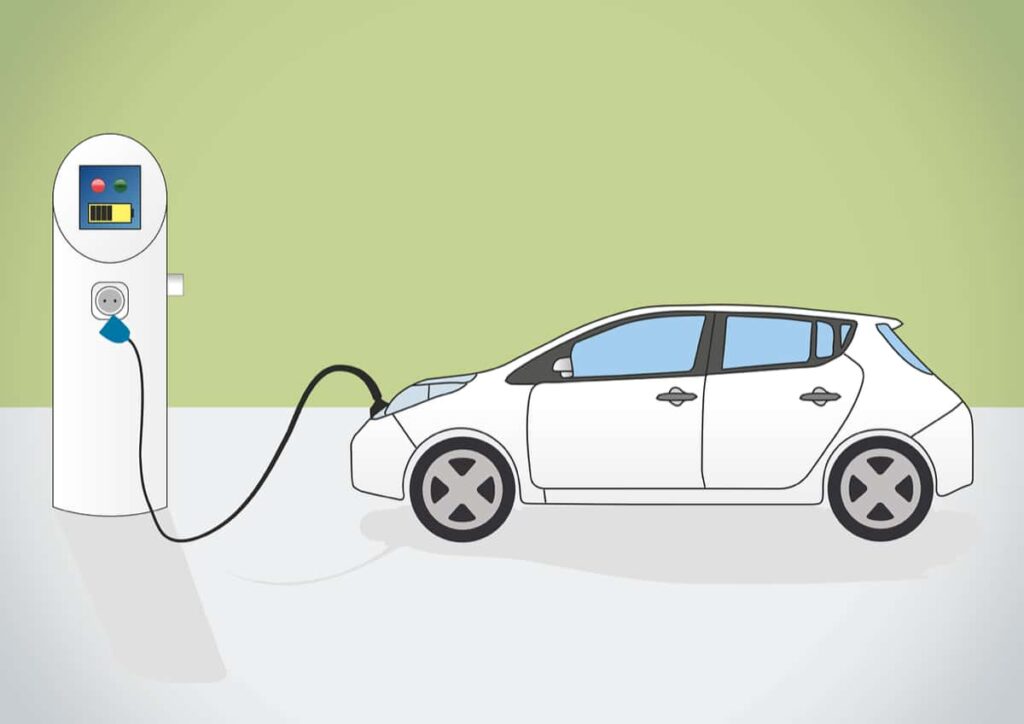
Time to build an EV charging station in India
Building an EV charging station in India takes about two to four weeks. The process involves getting the necessary approvals from the local authorities, finding a suitable location, and setting up the infrastructure. Once the station is operational, it can take up to six months to break even on the investment.
Who is building EV charging stations in India?
Several companies have built electric vehicle (EV) charging stations in India, including Tata Power, Hindustan Petroleum, and Indian Oil Corporation. These companies are working to build a network of EV charging stations across the country to support the growing number of EVs on the road. Tata Power is one of India’s largest electric utility companies, and it has been working to build a network of EV charging stations since 2015.
The company has installed over 100 charging stations in Mumbai, Pune, Delhi, Bengaluru, and Hyderabad. In addition, Tata Power has partnered with Mahindra & Mahindra to install fast-charging stations for electric cars. Hindustan Petroleum is another major oil company in India that is building a network of EV charging stations. The company has installed over 50 charging stations across the country, with plans to install more in the future.
HPCL is also working with automakers to promote EV use in India. Indian Oil Corporation, the largest oil company in India, is also working to build a network of EV charging stations. IOC has installed over 100 charging stations across the country, with plans to install more in the future. IOC is also working with automakers to promote EV use in India.
A bank loan for EV charging stations in India
The Indian government is encouraging the use of electric vehicles (EVs) in the country to reduce air pollution and dependence on imported oil. One way it does this is by providing loans to install EV charging stations. A bank loan for EV charging stations in India: The Indian government offers several types of loans to encourage the use of electric vehicles (EVs) in the country.
One of these is a bank loan for installing EV charging stations. The government provides this loan through banks such as the State Bank of India and the Industrial Development Bank of India. The loan amount can be up to Rs. 10 lahks. The interest rate on a loan is currently about 9%. The loan can be used to install both public and private EV charging stations.
However, the stations must meet certain technical specifications, including being able to charge two or more EVs simultaneously. The government aims to have 5,000 public and private EV charging stations operational in India by March 2021. As of December 2020, there were about 1,700 public and private EV charging stations in operation in the country.
In case you missed it: How to Start a Laundry Business in India: Business Plan, License, Investment, Profit Margin, and Requirements
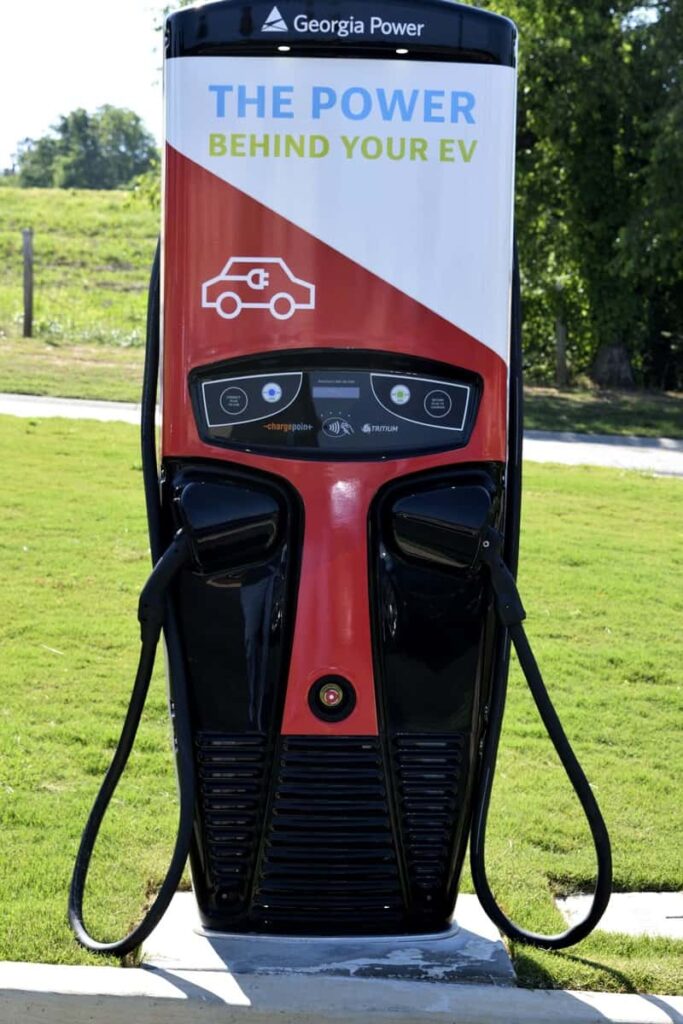
Who is the biggest EV charging station manufacturer in India?
Some of India’s EV charging manufacturing stations are Tata Power, Magenta Mobility, Fortum Charge & Drive India, Volttic EV Charging Solution, Ather Grid, PLUG N GO, Amara Raja, and Exicom Energy Systems.
6 Tips for a successful EV charging station business in India
India’s electric vehicle (EV) charging station market will grow at a CAGR (compound annual growth rate) of over 35% from 2019 to 2024. While the number of public EV chargers is increasing, the lack of standardization and interoperability remains a key challenge. Here are 6 tips for a successful EV charger business in India:
- Understand the business opportunity: The Indian EV market will grow significantly in the coming years. As a result, there is a strong demand for EV charging stations from both consumers and businesses.
- Develop a business plan: A well-defined business plan is essential for any successful business. This should include a market analysis, financial projections, and a marketing strategy.
- Secure funding: Securing adequate funding is crucial for any business. Make sure to have a solid financial plan before starting your business.
- Choose the right location: Location is an important factor for any business. Consider population density, parking availability, and visibility when selecting a location for your EV charger business.
- Install high-quality chargers: Install high-quality and reliable EV chargers to ensure customer satisfaction. This will also help you build a good reputation in the market.
- Promote your business: Create awareness through marketing and advertising initiatives. Use various channels like social media, print media, and online.
Conclusion
The EV station market in India is still in its nascent stage, with only a handful of charging stations operating in the country. However, with the government’s push for electric vehicles and increasing consumer awareness, the demand for charging infrastructure is expected to increase in the coming years. Given the current scenario, investing in an EV charging station could be a lucrative business proposition in India.
In case you missed it: How to Start Old Age Home Business in India: Cost, Business Plan, License, Profit, and Requirements
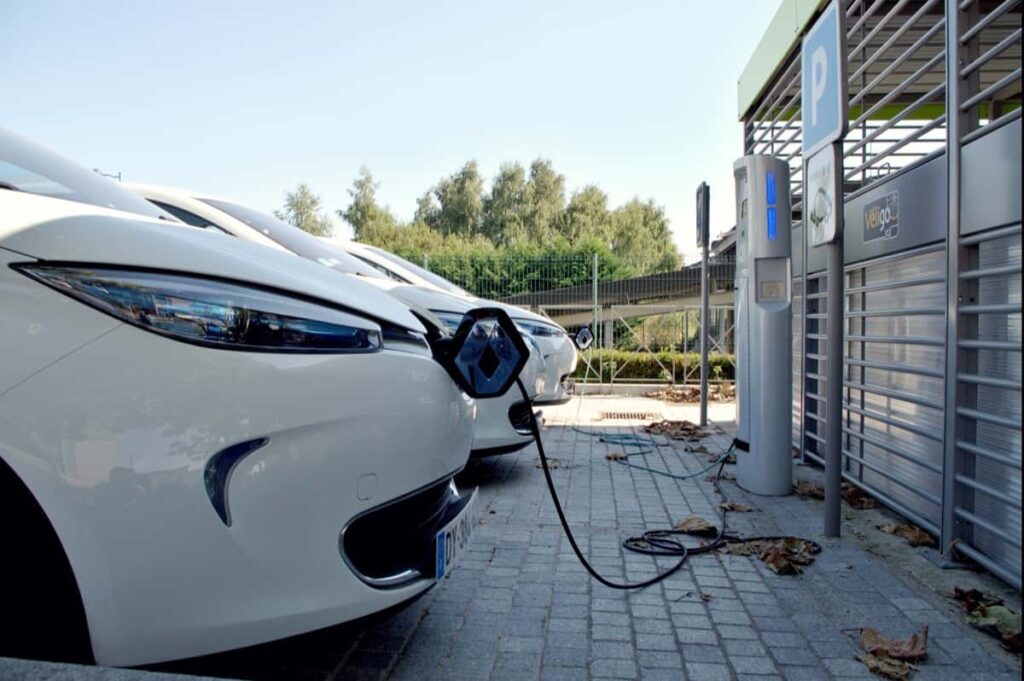
However, doing your homework before venturing into this space is important. Some key things to remember are identifying the right location, understanding the approval process, and getting the requisite permits. It is also important to have a robust business plan to ensure the business’s profitability and sustainability. If you plan to start/open an EV charging station business in the following states/cities, this article will help you reach your business goals.
| Andhra Pradesh | Karnataka | Haryana | Sikkim |
| Arunachal Pradesh | Kerala | Himachal Pradesh | Tamil Nadu |
| Assam | Madhya Pradesh | Jharkhand | Telangana |
| Bihar | Maharashtra | Nagaland | Tripura |
| Chhattisgarh | Manipur | Odisha | Uttar Pradesh |
| Goa | Meghalaya | Punjab | Uttarakhand |
| Gujarat | Mizoram | Rajasthan | West Bengal |
| Central India | South India | North India | West India |
| Mumbai/Bombay | Kolkata | Bengaluru | Jaipur |
| Chennai/Madras | Hyderabad | Secunderabad | Pune |
| Ahmedabad | Surat | Agra | Lucknow |
| Varanasi | Kochi | New Delhi | Chandigarh |
| Bhopal | Visakhapatnam | Nagpur | Madurai |
| Indore | Amritsar | Kanpur | Patna |
| Nashik | Vadodara | Thiruvananthapuram | Dehradun |
| Vijayawada/Guntur | Warangal | Karimnagar | Coimbatore |
| Raipur | Udaipur | Meerut | Ludhiana |
| Jamshedpur | Jabalpur | Guwahati | Gwalior |
| Dhanbad | Faridabad | Rajkot | Srinagar |
| Mangaluru | Aurangabad | Kota | Solapur |
| Asansol | Gandhinagar | Tiruchirappalli | Salem |
| Tirunelveli | Vellore | Tiruppur | Uttara Kannada |
| Chitradurga | Thane | Cuttack | Kannur |
| Jodhpur | Ranchi | Mysore | Bhubaneswar |
- Handicraft Making at Home: A Small Profitable Business Idea
- Pet-Tech Startups: Innovations for Animal Lovers
- Tech Repair Services: Meeting the Demand for Gadget Maintenance
- Maximizing Rewards: Smart Credit Card Habits for Cashback and Points
- Ultimate Guide to Making Money from Goat Milk Business
- How to Start an Agricultural Value Added Product Business
- Value-Added Business Ideas for Greenhouse: The Best Ways to Make Profits with Greenhouse Farming
- How to Make Profits with Organic Country Chicken: Best Strategies for Beginners
- 10 Value-added Business Ideas for Millets: Low-investment and Highly Profitable
- Why Cleaning Service Business Becoming More Profitable in Metro Cities in India
- 10 Best Businesses to Start in Ayodhya for Profits
- Top Drone Business Ideas in India: Unlocking Aerial Innovation & Opportunities
- Top 10 Service Businesses You Can Start with No Money
- Ultimate Guide to Starting a Home-Based Advertising Agency Business
- Starting a Nail Salon Near Your Location: Check List, Business Plan, Licensing, and Opening Instructions
- Construction Company Name Ideas: Guide to Create New Construction Company Names
- 8 Best Small Businesses to Start in Hyderabad: Low-Cost and Profitable
- 10 Best Small Businesses to Start in Massachusetts: Low-Cost and Profitable
- 10 Best Small Businesses to Start in Maryland: Low-Investment and Profitable
- 10 Best Small Businesses to Start in Delaware: Low-Investment and Profitable
- 10 Best Small Businesses to Start in Connecticut: Low-Investment and Profitable
- Top 10 Best Online Pet Business Ideas: Exploring Cats to Dogs
- 10 Best Small Businesses to Start in Colorado: Low-Investment and Profitable
- Top 10 Profitable Small Business Ideas in California: Low-Investment Tips
- From Little Rock to Fayetteville: Top 10 Profitable Small Business Ideas in Arkansas
- Top 10 Profitable Small Business Ideas in Alabama: Discover Opportunities in Alabama’s Growing Cities
- Top 10 Profitable Small Business Ideas in Arizona: Discover Opportunities in Arizona’s Growing Cities
- Golf Business Ideas: Exploring Golf Course Money Making Ideas
- Low Capital Profitable Small Farm Ideas: Farming Ideas to Make Money
- How to Write a Business Plan for Daycare: Exploring from Financial Projections to Risk Management
- Home Daycare License Requirements: Exploring State-wise In-home Daycare Requirements
- How Profitable is Day Care Business: How Much Does a Daycare Owner Make a Month or Year?
- How to Open a Daycare Center in Toronto, Canada: Business Plan, Licenses and Permits
- How to Start Meal Prep and Delivery Services: A Popular Business Idea
- How to Start a Milk Chilling Plant Business
- How to Start Coconut Shell Charcoal Business: Business Plan for Maximizing Profits